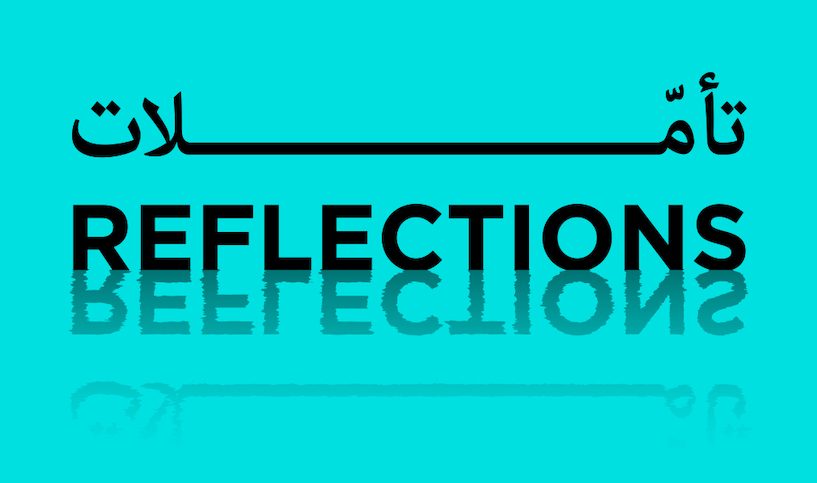Nuqat Insights x bazaar
With Nuqat’s recent announcement of this year’s 10-daylong conference set to take place between the 20th to 29th of November, we are all gearing up for a series of engaging, interactive talks, panel discussions, performances, multidisciplinary workshops, book readings, films screenings and so much more. We’ve marked our calendars, have you?
Nuqat’s previous conferences have raised great awareness on the importance of the creative industries and education, the human capital, as well as shedding light on the success of the collaborative process. This year poses an ambitious theme, aimed at resetting the mindsets that have shaped our personal, social, and structural understandings of the world in order to face the challenges of tomorrow. A set mindset, for the most part, arrives as a result of cumulative experiences, as well as societal norms, innately embraced as our own, without a second thought. Once again, Nuqat is utilizing collaboration in an effort to explore, seed, and share ideas on how to collectively require and adapt our frame of thinking in the face of the implications of tomorrow.
As part of Nuqat’s efforts to share stories connecting society, art and economy, Nuqat’s Insights, published bi-monthly in the pages of bazaar, is aimed to stimulate debate amongst readers, as well as counting down to this year’s Nuqat Conference, so watch this space!
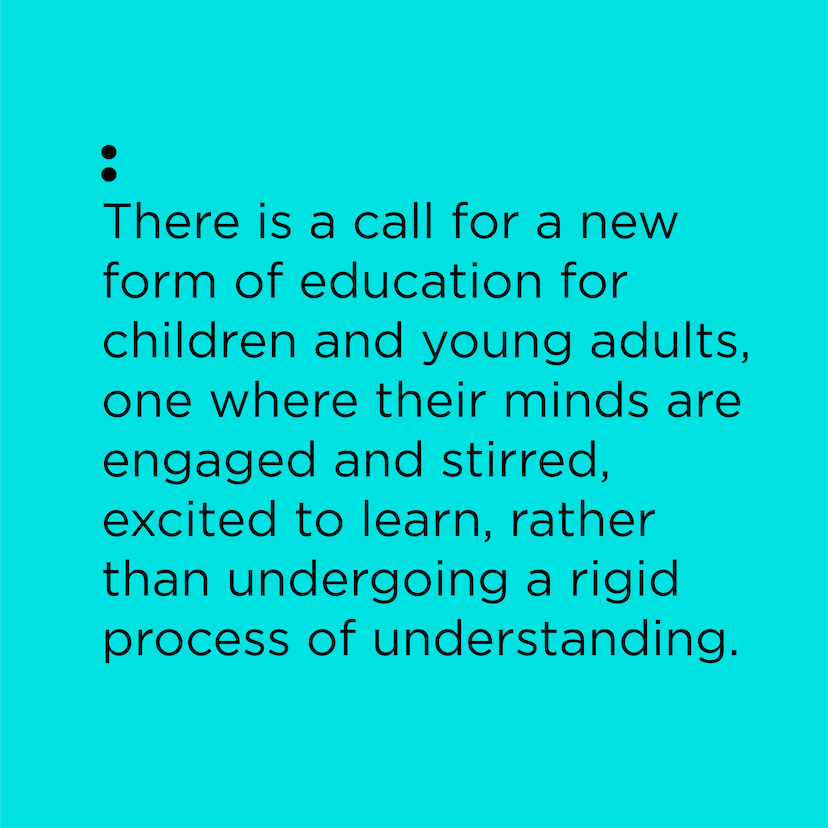
2018: A Year in Review
Early this year, Nuqat held a forum out of concern of the national urgency to develop alternative resources. Nuqat believes that in this light, the human capital takes center stage, with the creative mind playing a leading role. The forum was comprised of talks and panels that explored our innate human abilities to create, intuit and progress. Calls were made for a reframing of the mindset that has shaped the prevailing structures—in planning, in the creative sector, in education and more. The emphasis here is not solely on a need to restructure but also on the development of a culture of thinking that is responsive and grounded in its reality. One that is effective and proactive in change.
Policy Shifts, Mindset Shifts
In a discussion led by Mishaal Algergawi Laying Down the Foundations for Creativity to Thrive, the panelists looked at the conditions necessary to reap the rewards from the development of the human capital. The conditions listed had both a knowledge aspect and what Dr. Amani Albedah referred to as an abilities aspect. Under the aspect of knowledge, human capital development is dependent on a form of education that values humanities and the arts, an acceptance of diversity, and a focus on skill- learning that involves diligence and time dedication.
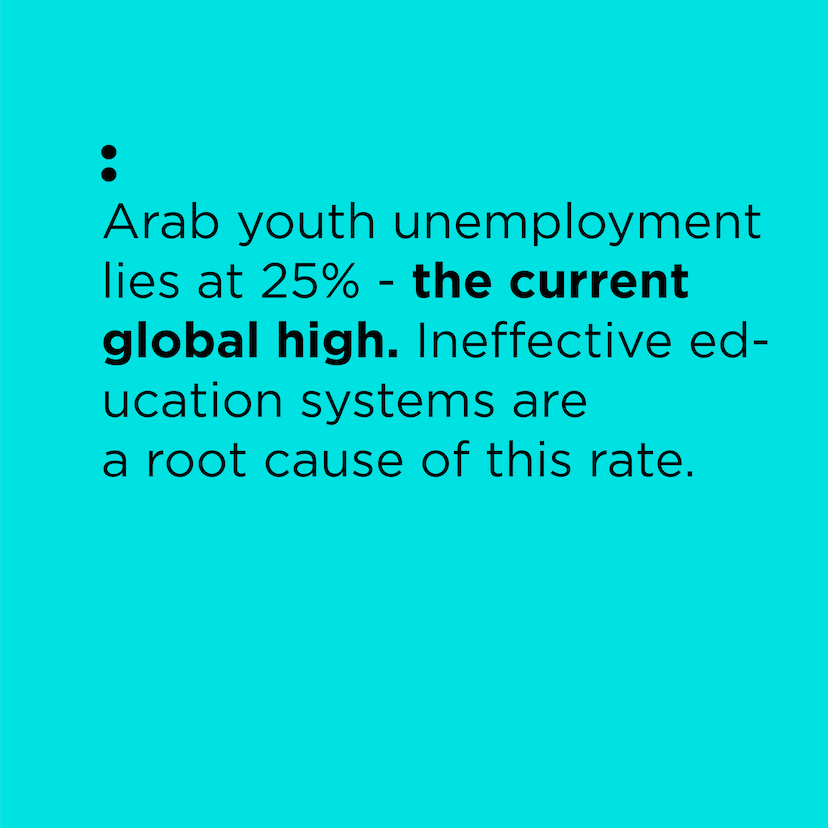
An overwhelming public negligence of these three points is clear. Dr Amani posed the questions about school curriculums particularly in Kuwait, “Do our students learn music? Or poetry? Or arts?” In public schools, there are at least 640 music and theater rooms that are either not properly maintained, or not used. What happens to our youth’s ability to think critically and engage with their daily reality when humanities and arts are excluded from the formative years spent in education?
The second set of conditions listed needed to nurture the development of a human capital base focused on an ‘abilities’ aspect. Dr. Amani first noted the vital role that individual freedom to knowledge and freedom to be curious holds in enabling a creative culture. The second note, one that is often overlooked in the dialogue on policy, is the ability to have hope. One cannot be motivated to work, create, and think differently when there is no hope to add value and meaning in the world they live in.
Dr. Khaled Mahdi, the Secretary-General of the General Secretariat of the Supreme Council for Planning and Development of Kuwait, pointed out that no steps can be taken towards a ‘new intellectual wave’ without a change in the collective mindset. Currently, there are a set of policies present that cater to the development of human capital led by the Government that is informed by global standard practices. This path, however, is not linear. The path does not solely correspond to reforms in education policy or the environment for an innovative economy. The policies alone are not a sufficient condition to enable this change. There are various conditions and social indicators that need to be looked at, including those that Dr. Amani previously mentioned, with regards to promoting a culture of diversity, of debate, of growth. What the panelists called for was the creation of importance, vigor, and a chance to have ownership over one’s future. This is fundamentally a social issue that is embedded in the collective mindset.
https://www.instagram.com/p/BrkKCgOA7qz/
Beyond a “Hypothetical Existence”
Tying closely to the discussion above, in her talk The Emergence and Development of a Cultural Subcurrent, Munira Al Sayegh described the precarious sentiments of expectation and entitlement she witnessed when working in the creative sector in the United Arab Emirates. Munira observed that there is an unfounded belief among creative youth – a belief that the already pre-existing and hypothetical institutions of the future are capable of addressing the vital issues of community-building, critical thinking and the development of a “grassroots cultural sub- current”. The sense of importance and ownership over the future that was referred to in the first discussion will struggle to take shape when the youth, in strictly creative fields or others, are constantly living in a state of expectation. She stated, “We are constantly in a state of existing in the future. We are constantly looking out for hypothetical museums to open up, to different institutions to take shape. But we are not concentrating on toiling the earth beneath us now.”
As Munira noted, it is the responsibility of every creative worker to direct their efforts to add depth and substance to the existing cultural landscape. Institutions in existence can secure their relevance and connection with the community through active efforts in responding to and reflecting the local context. Depth, connectivity, and growth in the cultural landscape can take place in spaces outside of these institutions. The label ‘grassroots’ can only be applied when such cultural movements are taking place independent of any state-led initiatives such as through informal gatherings and exchange. Top-down and bottom-up cultural initiatives can work in cohesion and the existence of independence in practice between the two should not translate to disconnect.
https://www.instagram.com/p/Brmx6YOg975/
Education Beyond Indoctrination
The Arab Youth Survey is conducted annually to provide evidence-based insights into the aspirations, hopes and fears of Arab youth. In the 2018 report, it was overwhelmingly clear that national education systems have offered inadequate preparation for an increasingly globalized labor market. Arab youth unemployment lies at 25% – the current global high. Ineffective education systems are a root cause of this rate. The goals of the education system should lie beyond meeting the current demands of the labor market. An education system that neglects the development of critical thinking skills has been a frequent subject matter in Nuqat’s past conferences.
In a panel discussion curated by Hikma, panelist Dr. Ebetehal Alkhateeb noted that students are instead being spoon-fed philosophy and modes of reasoning which has a clear effect on their abilities to think outside the box at an older age.
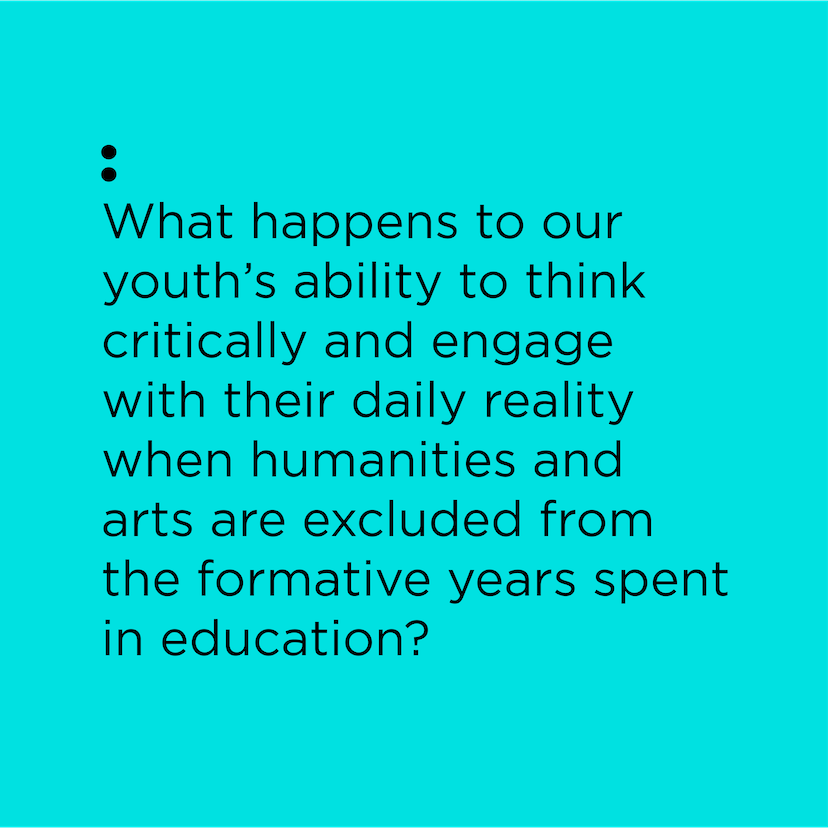
Panelist Hashem Alwazzan, founder of WazzanMath, shared what he believed are four essential skills to the critical learning process. First, the power in observation is of utmost importance particularly during a time where we are all – children and adults – constantly being bombarded with information via the screens of our phones, tablets, computers and televisions. Second, the exercise of imagination which can be nurtured through storytelling, reading, writing, drawing and so on. Third, the practice of experimentation which requires students to be fearless in their decisions, as there are lessons to be learnt from losses as well as gains. After all this, memorization and practice would come naturally—something that is overlooked when we are taught to memorize first, and think later. This calls for a new form of education for children and young adults, one where their minds are engaged and stirred, excited to learn, rather than undergoing an indoctrination process of understanding.
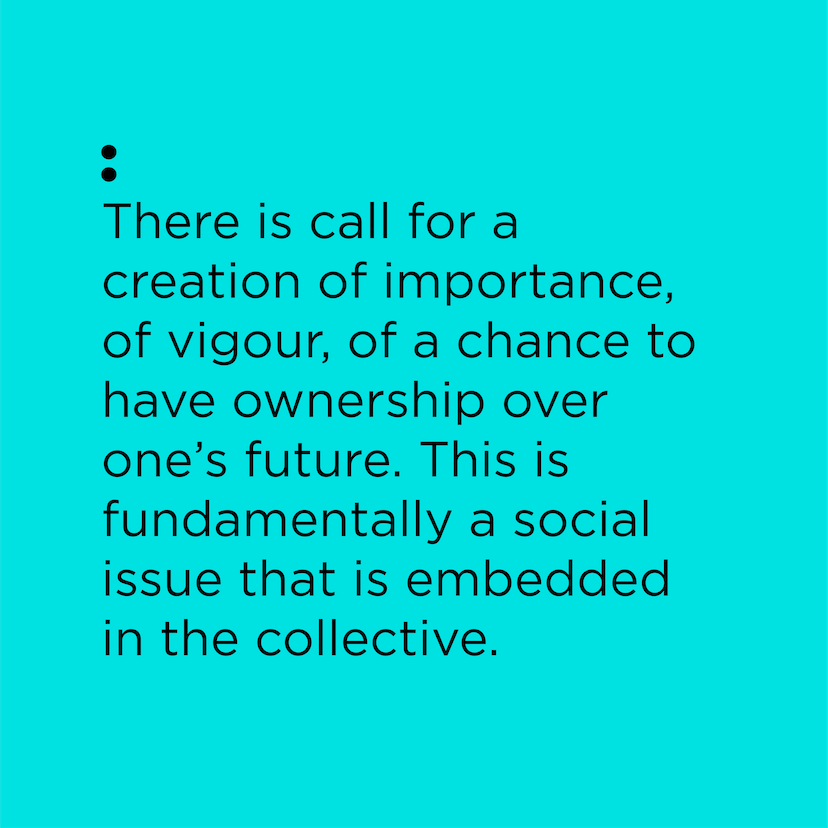
Experimental Education: Nuqat’s Experience
Something perhaps most demonstrative of Nuqat’s efforts towards nurturing creative education is the kids’ program IN•DIG•GO conducted in collaboration with the telecommunications company, Zain Group. In this experimental education program, Nuqat matched creative professionals with teachers from different schools in Kuwait. Four practical themes-the garden, film making, furniture design, and textile design – formed the content of the program. At the core of the program was a focus on actively nurturing skills such as creativity, collaboration, communication and critical thinking. By the end of the 12-week program, 34 children between the ages of six to 11 had completed the program. A creativity test based on the ‘Torrance Tests of Creative Thinking’ was conducted at the start and finish of the program to evaluate the efficacy of this form of learning. In the written component of the exam, Nuqat found a remarkable improvement between both genders in all ages. It was clear that students had a greater command of language and increased confidence in their creative expression. The program was conducted with the relentless support and contribution of the participating teachers and instructors. This year, Nuqat hopes to apply all that they have learnt from the pilot run to the second round of IN•DIG•GO.
https://www.instagram.com/p/Bk-OSe8Hign/
To get in touch with Nuqat, or to send across comments and suggestions, email insights@nuqat.me or follow them on Instagram @nuqat.



